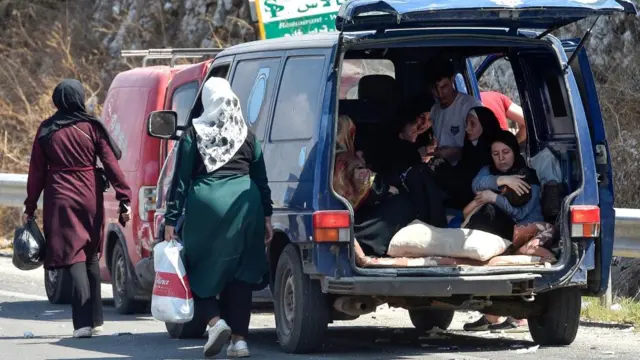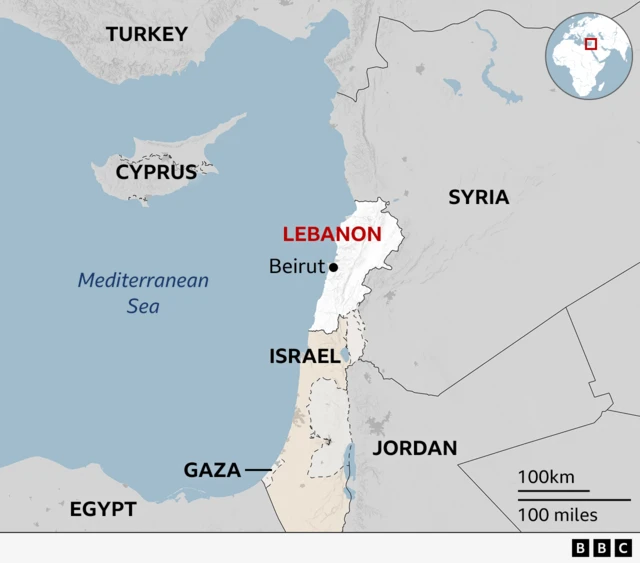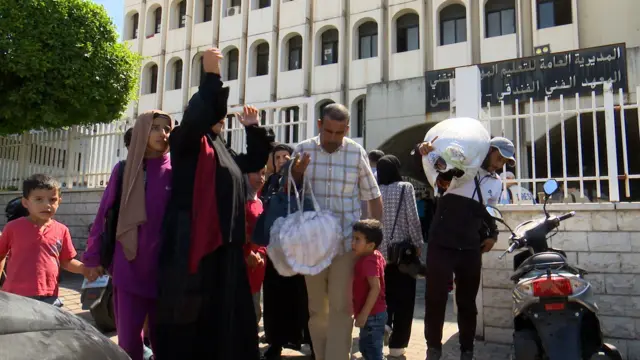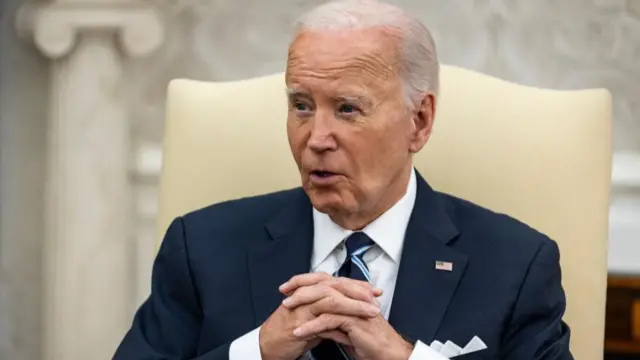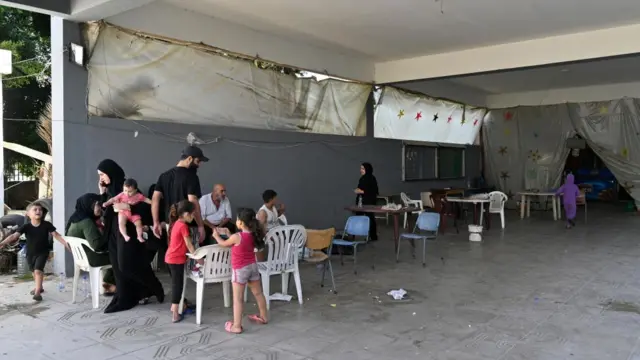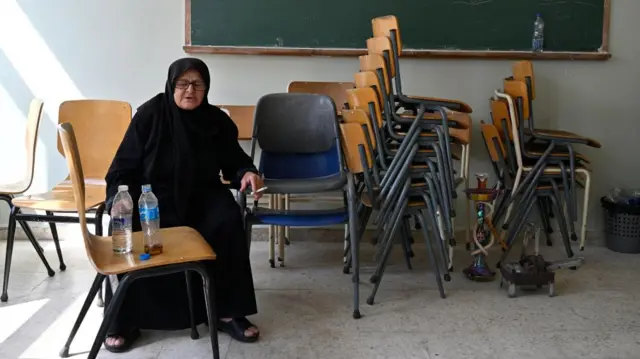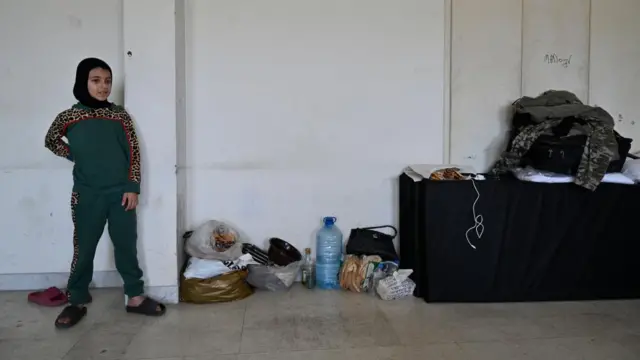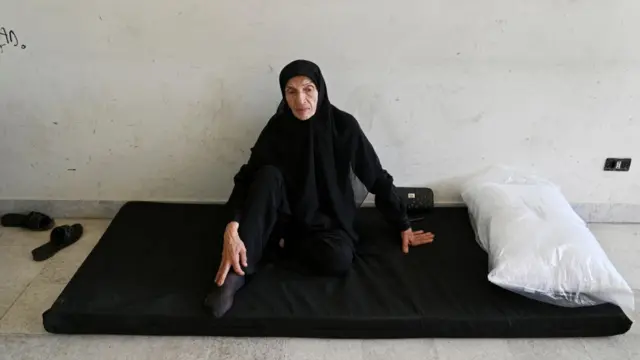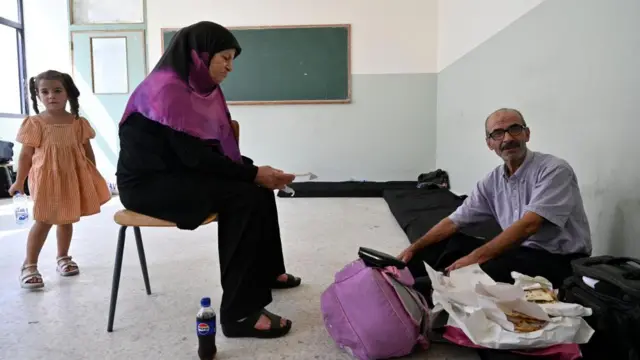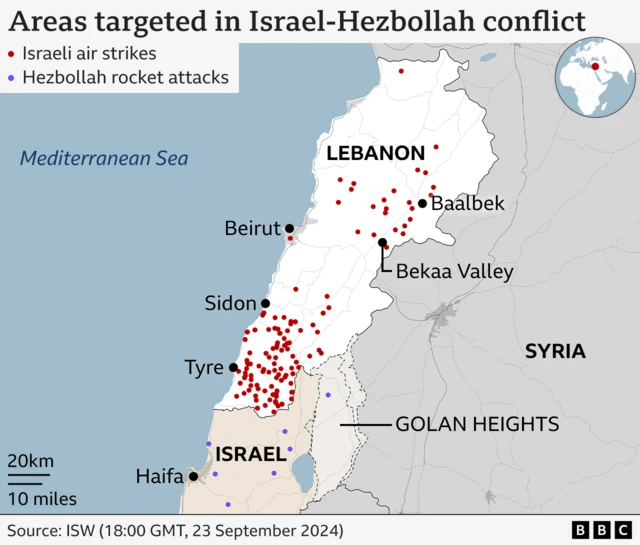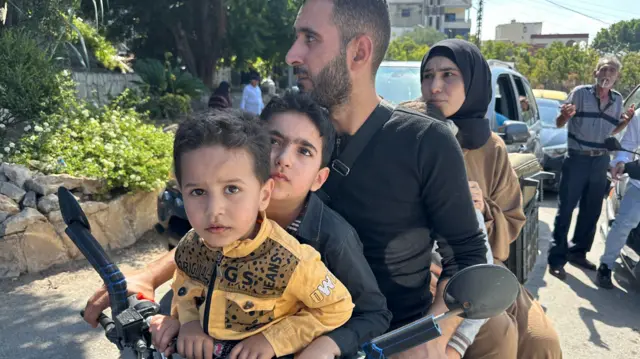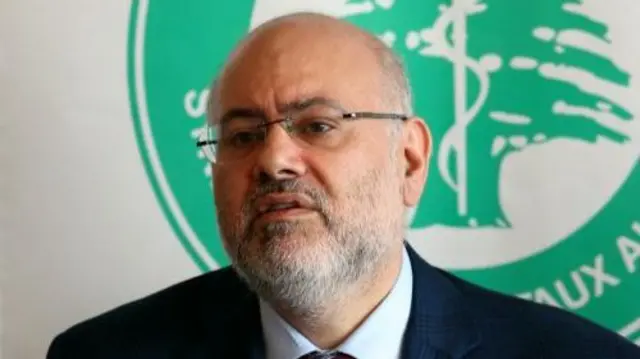Rocket interceptions seen - and heard - overhead in Israel's northpublished at 16:14 BST 24 September 2024
 Paul Adams
Paul Adams
Diplomatic correspondent, reporting from northern Israel
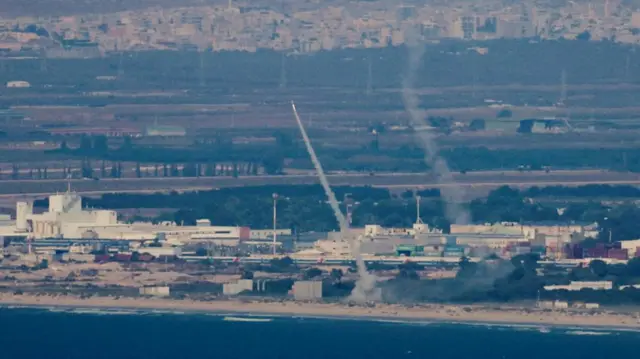 Image source, Reuters
Image source, ReutersIsrael's Iron Dome anti-missile system intercepts rockets launched from Lebanon towards Israel, as seen from Haifa
For the second time in the last few hours, Israel’s air defences have intercepted rockets over Kiryat Bialik, a suburb of the northern city of Haifa.
White puffs of smoke are visible above a shopping mall, its windows briefly rattled.
Some customers ran for the nearby shelter. Others ignored security guards and carried on eating their lunch.
It was a similar scene earlier nearby as former government minister Benny Gantz visited the scene of an explosion on Sunday which wrecked three private homes.
Municipal workers were on the scene, repairing a hole in the road where the rocket landed, while a bulldozer was busy removing wreckage.
No-one really flinched as Israel’s Iron Dome air defence system did its work overhead.


